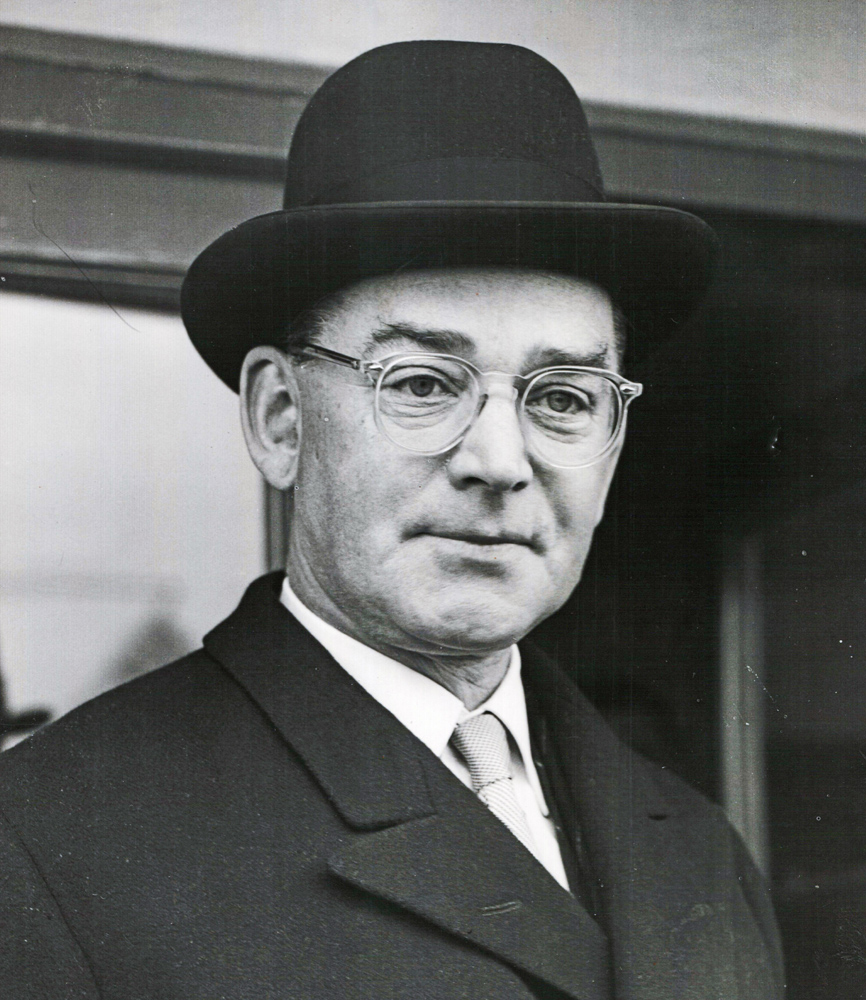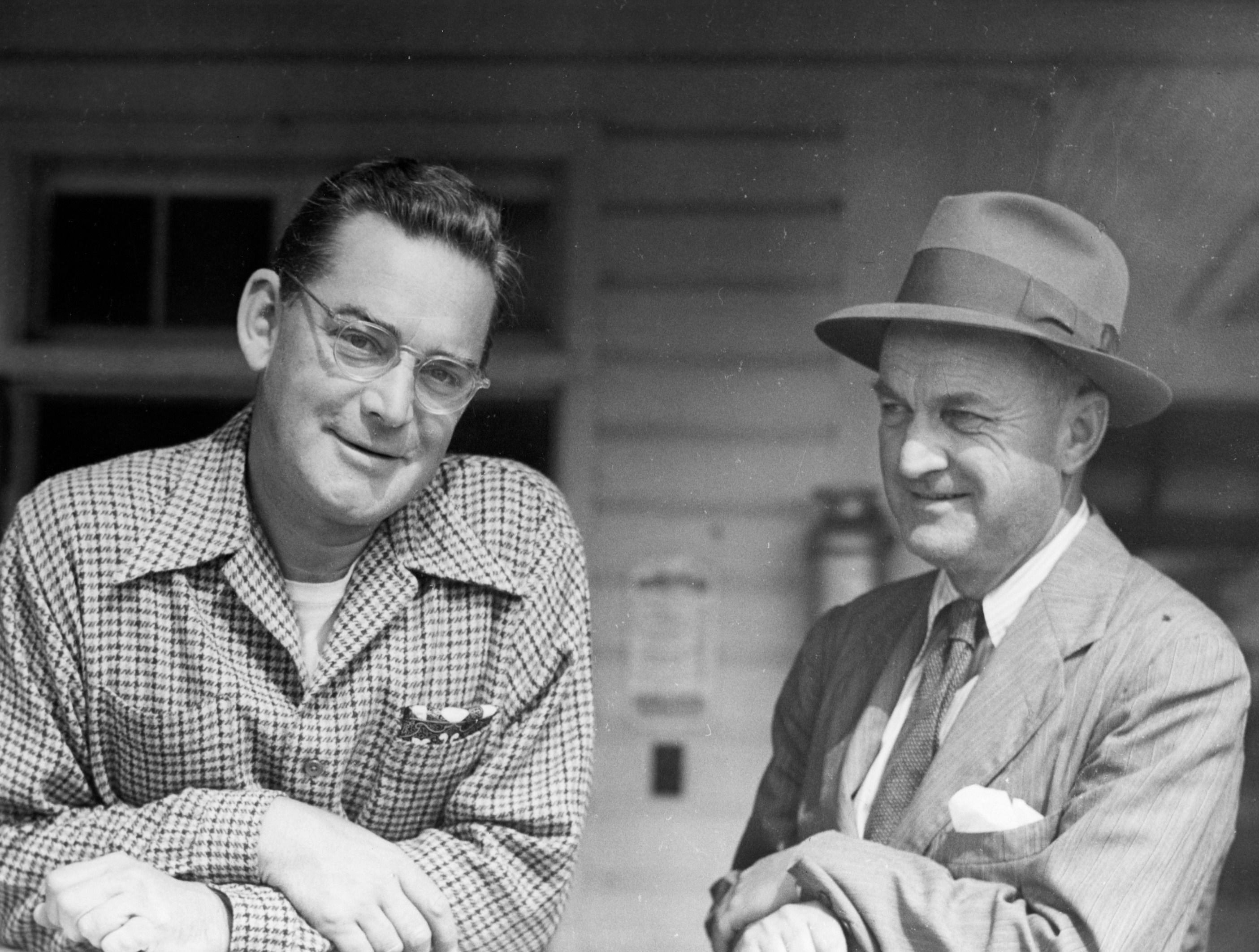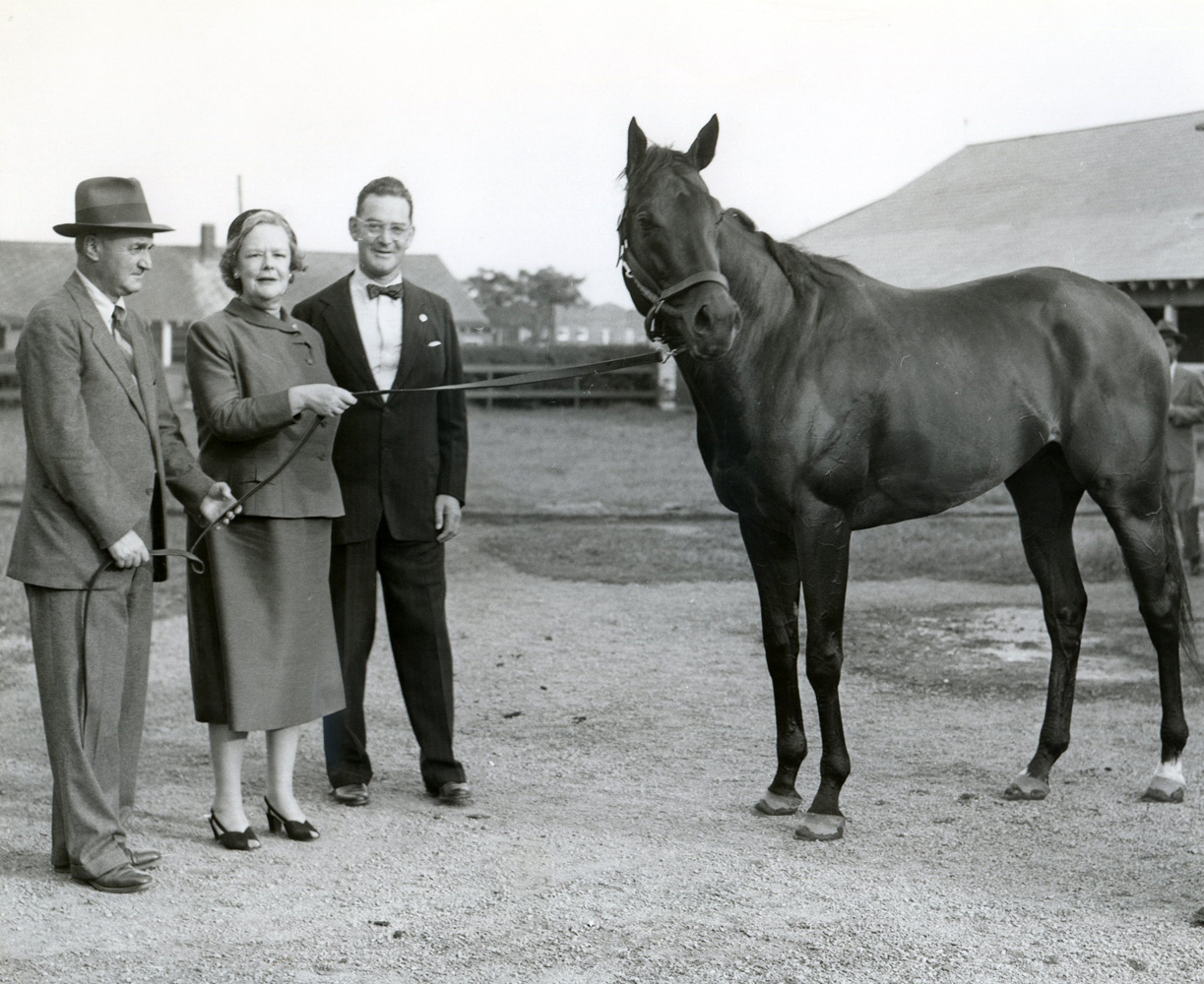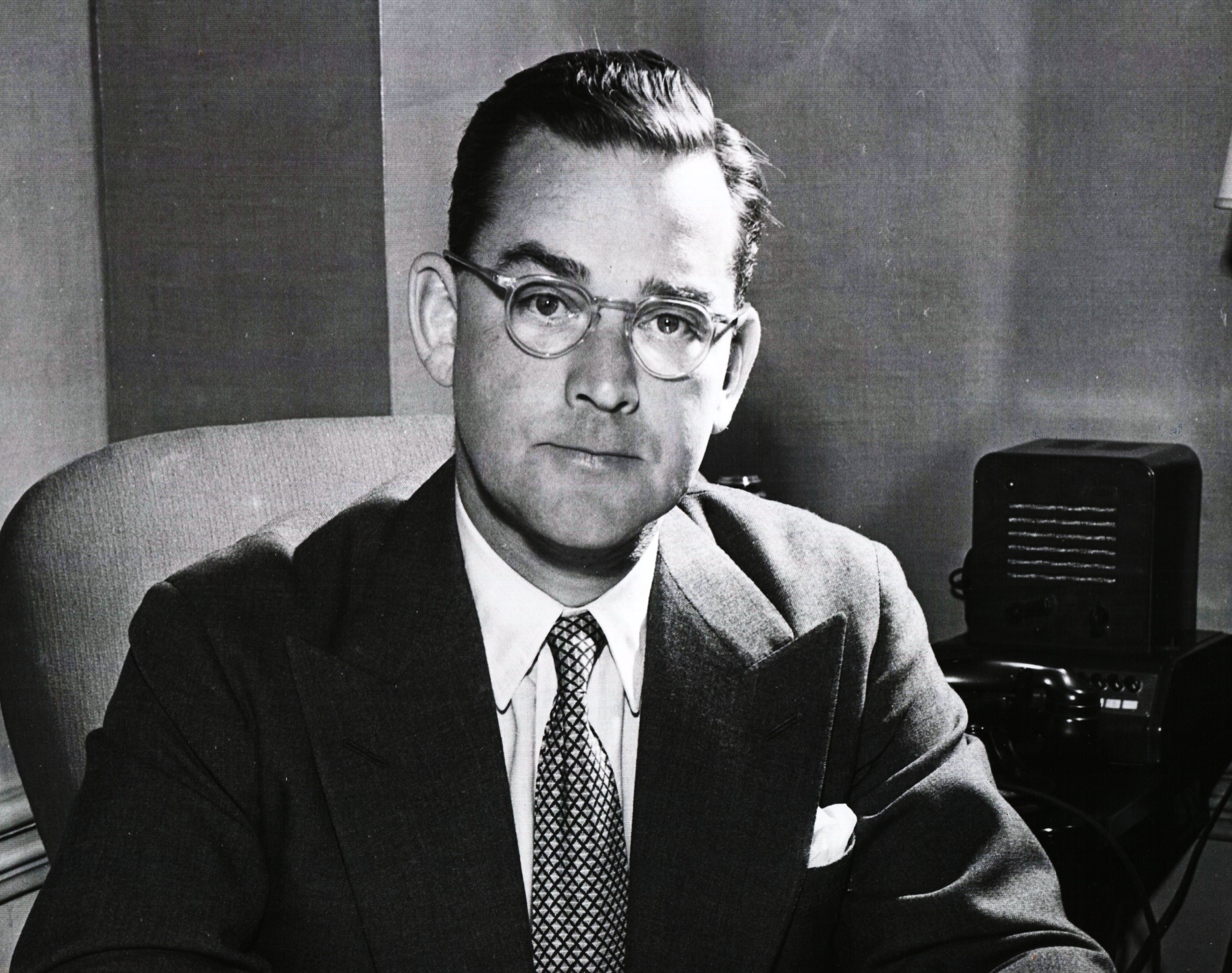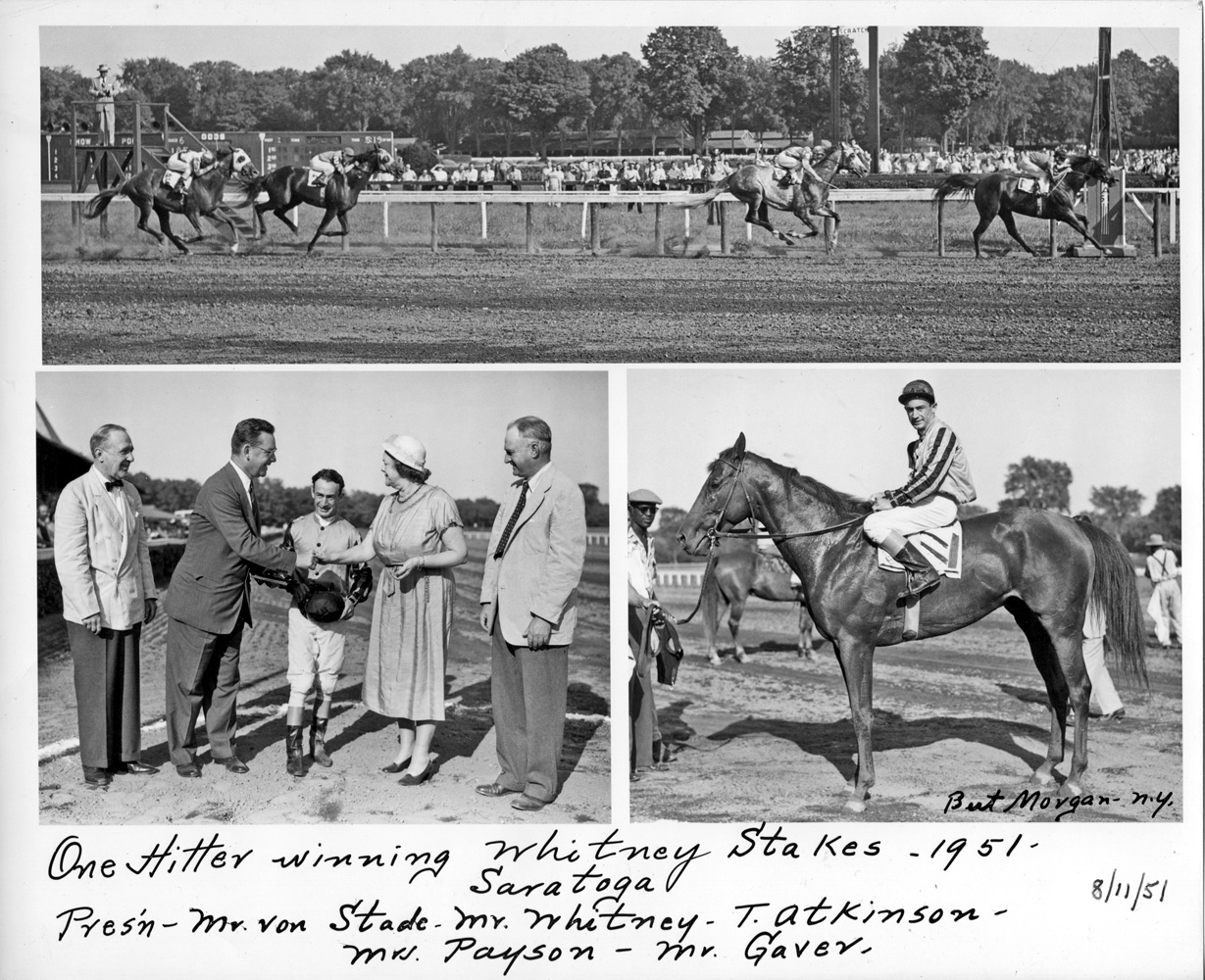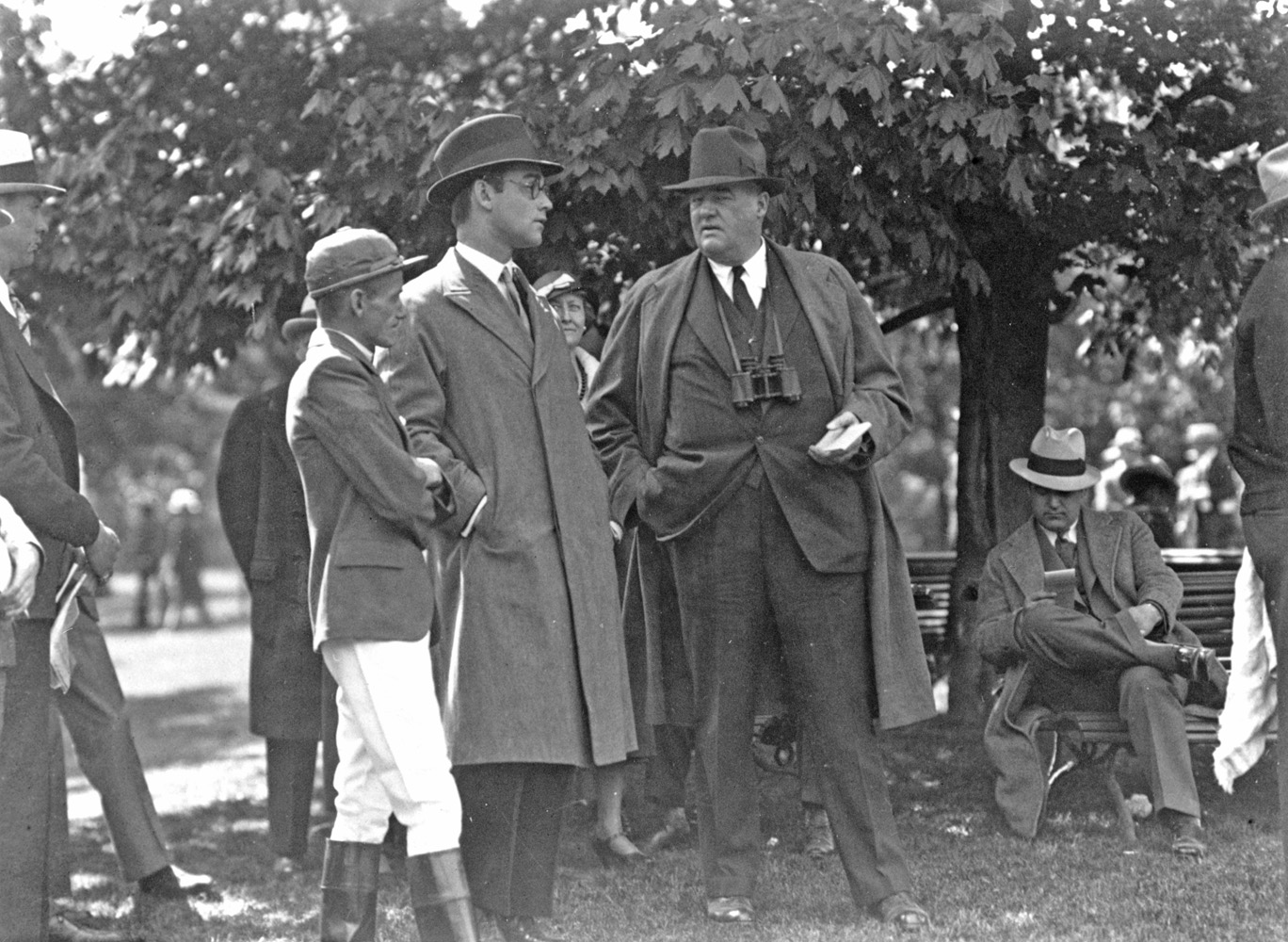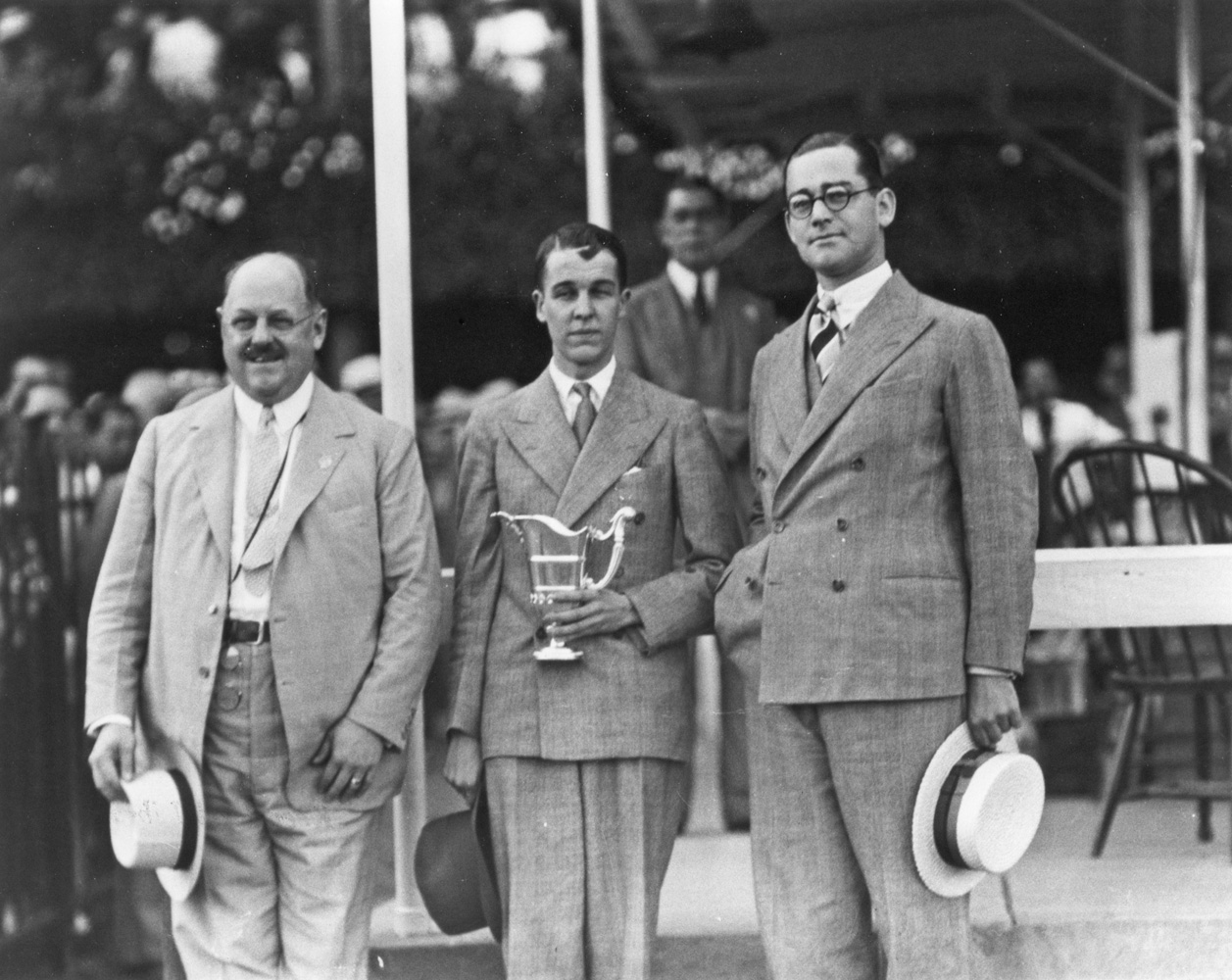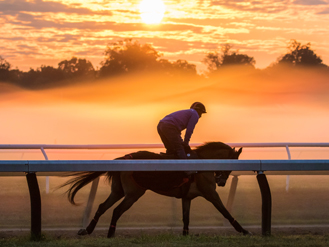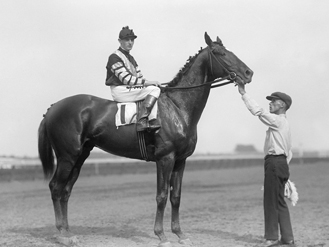John Hay "Jock" Whitney
John Hay Whitney was described by racing journalist Kent Hollingsworth as being “as close to royalty as American racing ever had.”
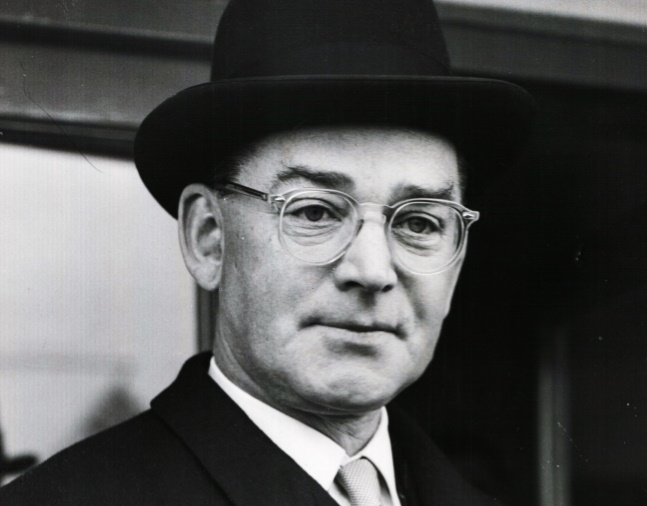
2015
Aug. 17, 1904, Ellsworth, Maine
Feb. 8, 1982, Manhasset, New York
Biography
John Hay Whitney was described by racing journalist Kent Hollingsworth as being “as close to royalty as American racing ever had.”
As an owner, breeder and leader of the sport for more than a half-century, Whitney established a legacy as one of the most influential and respected individuals thoroughbred racing has ever known.
Born in Maine in 1904, Whitney had distinguished bloodlines on both sides of his family. His paternal grandfather, William C. Whitney, was a major figure in political and financial circles and served as Secretary of the Navy. He was also the family’s patriarch in thoroughbred racing, enjoying success as an owner and breeder and playing a prominent role in the revitalization of racing at Saratoga.
John Hay Whitney’s maternal grandfather, John Hay, was a private secretary for Abraham Lincoln and later served as Secretary of State for presidents William McKinley and Theodore Roosevelt. Whitney’s mother, Helen, married Payne Whitney, who inherited a considerable fortune from his uncle, Oliver Payne. Helen Hay Whitney began racing steeplechasers in 1910 under the name of Greentree Stable, featuring the striking silks of watermelon pink with black striped sleeves. Helen Hay Whitney, known as the “First Lady of the Turf,” campaigned 116 stakes winners, including greats such as Twenty Grand, Shut Out, Devil Diver and Jolly Roger.
After graduating from Yale in 1926, John Hay Whitney, known as “Jock,” studied at Oxford in England until his father died in 1927. Upon his return to the United States to manage the family fortune, Whitney worked his way up in the banking industry as a buzzer boy and statistical clerk even though he had inherited a reported $100 million from his late father.
In 1936, Whitney became chairman of the board of Selznick International Pictures. Whitney had long been enamored with filmmaking and was a major investor in the revolutionary Technicolor company. At Selznick Pictures, he purchased the movie rights to “Gone with the Wind” and was the principal financier of that film, which won eight Academy Awards, including Best Picture. Another film Whitney helped finance, “Rebecca,” won two Academy Awards and was the American directorial debut of Alfred Hitchcock.
Whitney accepted a captain’s commission in the air corps in 1942. While on an intelligence mission in France during World War II, Whitney was captured along with 45 others by the Germans. He was being transported when he managed to escape by leaping from a moving train. He navigated his way back safely to American lines 18 days after being detained.
Racing was always a passion for Whitney. Upon his graduation from Yale, he received two yearlings as a gift from his father and was elected to The Jockey Club at age 24 in 1928. Whitney campaigned his first stakes winners in 1931, running them in the name of his first wife, Mary Elizabeth Altemus. Whitney’s first major winner was Singing Wood, winner of the prestigious Futurity in 1933.
When New York racing was reorganized in 1934, Whitney was appointed to the state commission. That year, he called a meeting at his mother’s Greentree Stud near Lexington, Kentucky, and formed the American Thoroughbred Breeders’ Association, the forerunner of TOBA. Whitney served as the organization’s president until 1952 and continued as chairman of the board until he became Ambassador to the Court of St. James in 1957. Around the time he formed the ATBA, Whitney also purchased Old Hickory Farm near Lexington and renamed it Mare’s Nest. He stood the stallions Royal Minstrel and The Porter and bred two dozen stakes winners there.
Upon his mother’s death in 1944, Whitney inherited a controlling interest of 63 percent of Greentree, while his sister, Joan Whitney Payson, received 37 percent. Their previously separate racing and breeding endeavors were subsequently combined under the Greentree banner.
With the siblings continuing the family legacy, Greentree remained a major force in American racing and breeding. Helen Hay Whitney bred 78 stakes winners during her years owning Greentree and 91 more followed under the ownership of her children. In 1945, Greentree bred its first $100,000 earner of the John Hay Whitney era, Mesmer. Capot came along in 1946 and went on to be named Horse of the Year in 1949 when he won the Preakness, Belmont, and Pimlico Special. Along with Capot, Greentree bred champions Stage Door Johnny, Late Bloomer, and Bowl Game during the John Hay Whitney era.
The best horse Whitney ever owned was Tom Fool, a private purchase from breeder Duval Headley as a yearling. Tom Fool won all 10 of his races as a 4-year-old in 1953, including the Metropolitan, Suburban, Brooklyn, Whitney, and Carter handicaps, as well as the Pimlico Special, to be named Horse of the Year. Tom Fool’s victories in the Metropolitan, Suburban, and Brooklyn secured what was known as the Handicap Triple Crown, which had not been won since Whisk Broom II in 1913. Tom Fool went on to sire more than 30 stakes winners, including Buckpasser, Tim Tam, and Tompion.
Whitney never knew a dull moment. As well as being a prominent owner and breeder, he served as a steward in The Jockey Club and was one of the major players in the establishment of the Greater New York Association in 1955. In 1956, he was appointed Ambassador to the Court of St. James, a role he held through 1961. Along with his racing and political interests, Whitney invested heavily in the New York Herald-Tribune and served as its publisher from 1961 through 1966.
Stage Door Johnny, bred and owned by Greentree, gave Whitney a tremendous source of pride when he won the 100th edition of the Belmont Stakes in 1968. He became the fourth Greentree runner to win the Belmont, joining Twenty Grand (1931) and Shut Out (1942) from the Helen Hay Whitney era and Capot (1949).
Upon Joan Whitney Payson’s death in 1975, her stake in Greentree passed to her husband, Charles Shipman Payson. Whitney bought out that interest in 1980 to obtain sole ownership of Greentree. He died two years later at the age of 77. Whitney was survived by his second wife, Betsey Cushing Roosevelt Whitney, whom he married in 1942, as well as two stepdaughters and eight grandchildren.
Achievements
Triple Crown Highlights
Won the 1949 Preakness Stakes — Capot
Won the 1949 Belmont Stakes — Capot
Won the 1968 Belmont Stakes — Stage Door Johnny
Other Highlights
Bred 91 stakes winners, including four champions
Media
